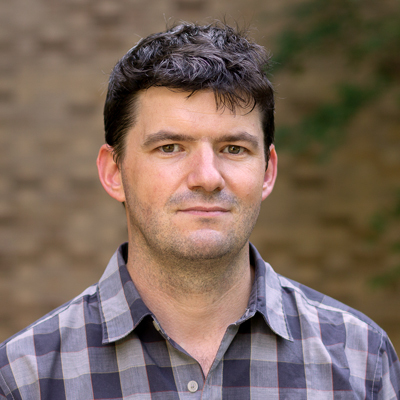Cristian Koepfli Assistant Professor

Research Interests:
Research in our lab uses molecular tools to better understand the epidemiology of malaria and other infectious diseases. We constantly develop novel laboratory methods to diagnose, quantify and genotype parasites and their transmission stages, and apply them to large population-based surveys. We aim to contribute to new strategies for the control and eventual elimination of infectious diseases.
A large proportion of all malaria infections do not result in febrile illness and thus remain untreated. Clinical diagnosis in endemic countries often lacks sensitivity, adding to the number of untreated infections. Using sensitive molecular methods, we aim to understand the true extent of infections. In Bangladesh, we have shown that archived specimens from the national malaria control program can be used to map the risk of future outbreaks.
Deletions of the Plasmodium falciparum genes hrp2 and hrp3 prevent diagnosis by common rapid diagnostic tests. Using a highly sensitive novel method, we screen isolates from numerous countries and help malaria control programs to select the best diagnostic methods. In collaboration with industry partners, we develop and test alternative diagnostics that overcome shortcomings of current methods.
Not all infections are equally infective to mosquitos, and likely infectivity changes over the course of an infection. Through the quantification of transmission stages, we can understand what and when individuals are infective. In western Kenya, we have shown that parasites increase their investment in transmission in the wet season, when vectors are abundant. Understanding such patterns will be crucial to develop more effective intervention methods.
Transmission is often highly focal in space and time, but the drivers of this heterogeneity are poorly understood. We use genotyping methods in conjunction with GPS data to assess transmission networks and to distinguish imported from locally acquired infections. Current project focus on Zanzibar, Bangladesh, and Ethiopia.
We work in close collaboration with institutions in malaria endemic countries in Africa, Asia, and Latin America, and regularly welcome researchers from these countries to Notre Dame for training.
Biography:
- Assistant Professor, Department of Biological Sciences & Eck Institute for Global Health, University of Notre Dame 2018 - Present
- Assistant Project Scientist, University of California Irvine, USA 2016-2018
- Postdoctoral Fellow, Walter and Eliza Hall Institute for Medical Research, Australia 2012-2016
- PhD, Swiss Tropical and Public Health Institute, Switzerland 2012
Recent Papers:
- Sagna AB, Kibria MG, Naher S, Islam S, Aktaruzzaman MM, Alam MS, Koepfli C. Stratifying malaria receptivity in Bangladesh using archived rapid diagnostic tests. Malar J. 2020 Sep 23;19(1):345. doi: 10.1186/s12936-020-03418-y.
- Oduma CO, Ogolla S, Atieli H, Ondigo BN, Lee MC, Githeko AK, Dent AE, Kazura JW, Yan G, Koepfli C. Plasmodium falciparum increases its investment in gametocytes in the wet season in asymptomatic individuals. bioRXiv 2020 UAg 5. doi: https://doi.org/10.1101/2020.08.04.236950
- Koepfli C, Yan G. Plasmodium Gametocytes in Field Studies: Do We Measure Commitment to Transmission or Detectability? Trends Parasitol. 2018 May;34(5):378-387. doi: 10.1016/j.pt.2018.02.009.
- Waltmann A, Koepfli C, Tessier N, Karl S, Fola A, Darcy AW, Wini L, Harrison GLA, Barnadas C, Jennison C, Karunajeewa H, Boyd S, Whittaker M, Kazura J, Bahlo M, Mueller I, Barry AE. Increasingly inbred and fragmented populations of Plasmodium vivax associated with the eastward decline in malaria transmission across the Southwest Pacific. PLoS Negl Trop Dis. 2018 Jan 26;12(1):e0006146. doi: 10.1371/journal.pntd.0006146. eCollection 2018 Jan.
- Lerch A, Koepfli C, Hofmann NE, Messerli C, Wilcox S, Kattenberg JH, Betuela I, O'Connor L, Mueller I, Felger I. Development of amplicon deep sequencing markers and data analysis pipeline for genotyping multi-clonal malaria infections. BMC Genomics. 2017 Nov 13;18(1):864. doi: 10.1186/s12864-017-4260-y.
- Koepfli C, Ome-Kaius M, Jally S, Malau E, Maripal S, Ginny J, Timinao L, Kattenberg JH, Obadia T, White M, Rarau P, Senn N, Barry AE, Kazura JW, Mueller I, Robinson LJ. Sustained Malaria Control Over an 8-Year Period in Papua New Guinea: The Challenge of Low-Density Asymptomatic Plasmodium Infections. J Infect Dis. 2017 Dec 12;216(11):1434-1443. doi: 10.1093/infdis/jix507.
- Koepfli C, Rodrigues PT, Antao T, Orjuela-Sánchez P, Van den Eede P, Gamboa D, van Hong N, Bendezu J, Erhart A, Barnadas C, Ratsimbasoa A, Menard D, Severini C, Menegon M, Nour BY, Karunaweera N, Mueller I, Ferreira MU, Felger I. Plasmodium vivax Diversity and Population Structure across Four Continents. PLoS Negl Trop Dis. 2015 Jun 30;9(6):e0003872. doi: 10.1371/journal.pntd.0003872.
- Koepfli C, Colborn KL, Kiniboro B, Lin E, Speed TP, Siba PM, Felger I, Mueller I. A high force of Plasmodium vivax blood-stage infection drives the rapid acquisition of immunity in papua new guinean children. PLoS Negl Trop Dis. 2013 Sep 5;7(9):e2403. doi: 10.1371/journal.pntd.0002403.